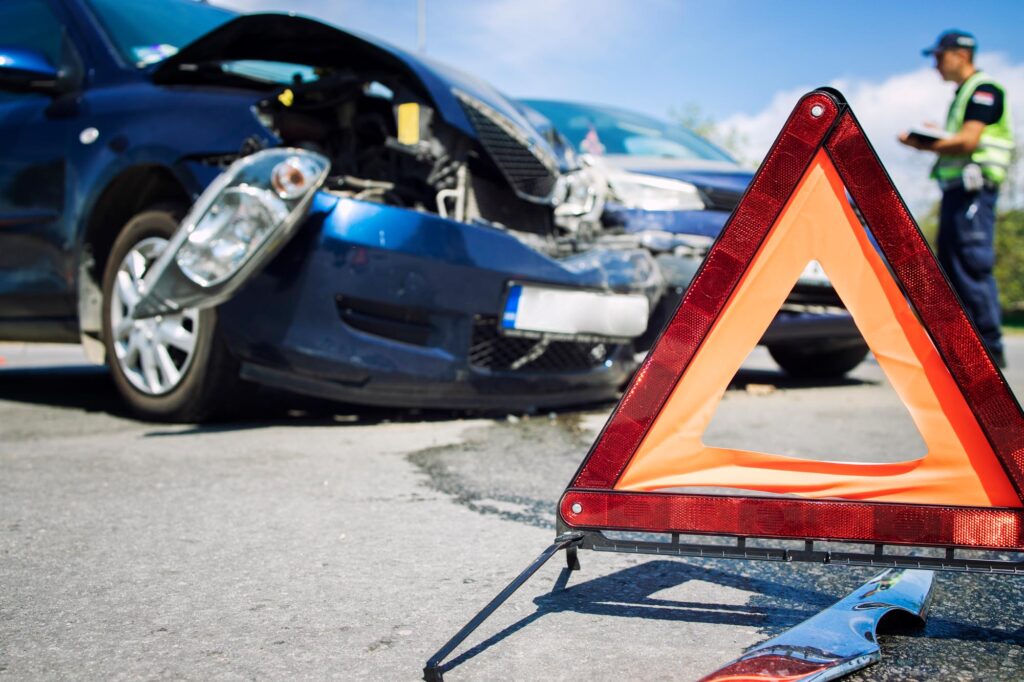India has one of the highest rates of road traffic accidents globally, with thousands of lives lost each year. Despite advancements in vehicle technology and infrastructure, road safety remains a critical issue affecting millions. The country faces a significant challenge, with over 150,000 deaths annually due to road accidents, accounting for 11% of global fatalities. Despite considerable government efforts, road safety remains a major concern.

Government Initiatives
Minister Nitin Gadkari recently acknowledged the urgent need for improved road safety measures, urging for a 50% reduction in road accidents by involving corporates in the solutions. He emphasized the necessity for stricter enforcement and public-private partnerships to address this critical issue.
The Motor Vehicles (Amendment) Act, 2019, marked a significant reform aimed at enhancing road safety by imposing stricter penalties and improving enforcement. Initiatives like rectifying black spots, enhancing road engineering, and mandating airbags in economy cars are also underway.
Under the leadership of Union Minister for Road Transport & Highways Nitin Gadkari, the Government of India has launched several initiatives to improve road safety, including:
1. National Road Safety Policy – Focused on creating safer roads, vehicles, and drivers.
2. Motor Vehicles (Amendment) Act, 2019 – Introducing stricter penalties for traffic violations and enhancing road user discipline.
3. National Road Safety Month – An annual campaign to raise awareness and promote safer driving habits.
4. Road Safety Audits – Systematic safety assessments of roads across the country.
5. Fitment of Advanced Driver Assistance Systems (ADAS) – Promoting technology in vehicles to minimize human error.
Despite these measures, the government acknowledges that more work is needed, particularly through public-private partnerships. Reports suggest that data-driven evidence, institutional strengthening, and public-private collaborations are key drivers for enhancing road safety.
Initiatives by the Private Sector
Minister Nitin Gadkari advocates that private companies can play a crucial role by innovating and deploying cutting-edge technology solutions that enhance vehicle safety, enforce traffic laws, and improve infrastructure. Companies like Rosmerta Technologies are critical in offering innovative solutions such as high-security registration plates, smart tracking systems, and driver education programs.
Role of Private Companies like Rosmerta Technologies in Supporting Road Safety
Private companies, including Rosmerta Technologies, are key contributors to the government’s mission of improving road safety. Rosmerta Technologies, a leading provider of advanced automotive solutions, is committed to revolutionizing the mobility ecosystem through its technological offerings. While not directly responsible for road safety enhancements, Rosmerta plays a vital role in enabling safer transportation by delivering integrated solutions that streamline vehicle management, compliance, and safety monitoring nationwide.
1. Smart Vehicle Tracking Systems – Enabling real-time tracking and monitoring of vehicles to improve compliance with speed limits and prevent accidents.
2. High-Security Registration Plates (HSRP) – The world’s second-largest and India’s number one HSRP manufacturer.
3. Intelligent Transport Management Systems (ITMS) – Telematics devices providing monitoring solutions, hosting, and operational capabilities.
4. Driver Training & Licensing Solutions – Offering tech-enabled systems to train drivers and ensure proper certification, reducing the number of unqualified drivers on the road.
Such initiatives align with the government’s vision and significantly enhance road safety by reducing human error and improving traffic enforcement.
What Needs to Be Done
While much progress has been made, road safety in India requires a concerted effort from all stakeholders to effect lasting change. Key areas needing attention include:
1. Improving Infrastructure – Investment in safer roads, better signage, and well-designed intersections is critical.
2. Stronger Enforcement – Law enforcement agencies must be empowered with the latest technology to consistently enforce traffic rules.
3. Public Awareness – Educational campaigns should target schools, workplaces, and the general public to foster a culture of safety.
4. Technological Innovations – Encouraging both private and public sector innovations in vehicle safety technology, traffic management, and accident prevention.
5. Collaborative Approach – Strengthening public-private partnerships, with companies like Rosmerta leading the way in providing solutions that complement government initiatives.
Conclusion
India’s road safety challenge is immense, but with the right mix of policy, technology, and public engagement, a significant reduction in road accidents is achievable. This effort highlights the need for collaborative actions from the government, private sector, and citizens alike to ensure safer roads for all.